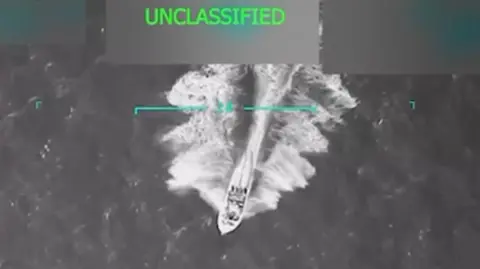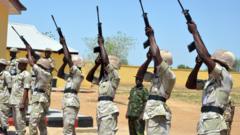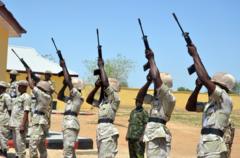In recent remarks made during a visit to Ecuador, US Secretary of State Marco Rubio expressed the country’s willingness to take decisive military actions against foreign crime groups, stating, Now they're gonna help us find these people and blow them up, if that's what it takes. Rubio's assertive comments came amidst the US government's designation of two prominent Ecuadorian gangs, Los Lobos and Los Choneros, as foreign terrorist organizations.
This declaration allows the US to target the financial assets linked to these gangs and strengthens intelligence-sharing protocols with Ecuador without restrictions, increasing the prospects for potential military operations.
His statements follow a controversial US military operation that reportedly killed 11 drug traffickers in the Caribbean Sea, further emphasizing the US's aggressive stance against drug-related crime. This operation faced scrutiny, with legal experts questioning its adherence to international law.
During the visit, Rubio noted that cooperation with friendly governments is essential. While Ecuadorian President Daniel Noboa has sought aggressive measures against gang violence, including inviting US and European military support, the extent to which these nations will directly engage in militaristic actions remains uncertain.
In light of rising violence attributed to drug gangs in Ecuador, which significantly impacts cocaine trafficking routes, the stakes have never been higher. Approximately 70% of the world's cocaine transits through Ecuador, as it moves from production countries like Colombia and Peru to markets in the US and beyond.
Additionally, the ongoing violence and the threat posed by cartels are factors driving increased migration from Ecuador to the US and complicating asylum considerations for victims. Legal experts highlight a potential duality wherein designating gangs as terrorist organizations could classify victims as victims of 'terrorism', yet also risk penalizing those who have financially supported these groups for survival.
This intricate situation underscores the complex interplay of international relations, crime prevention, and humanitarian issues in the region, with implications that extend beyond Ecuador's borders.





















